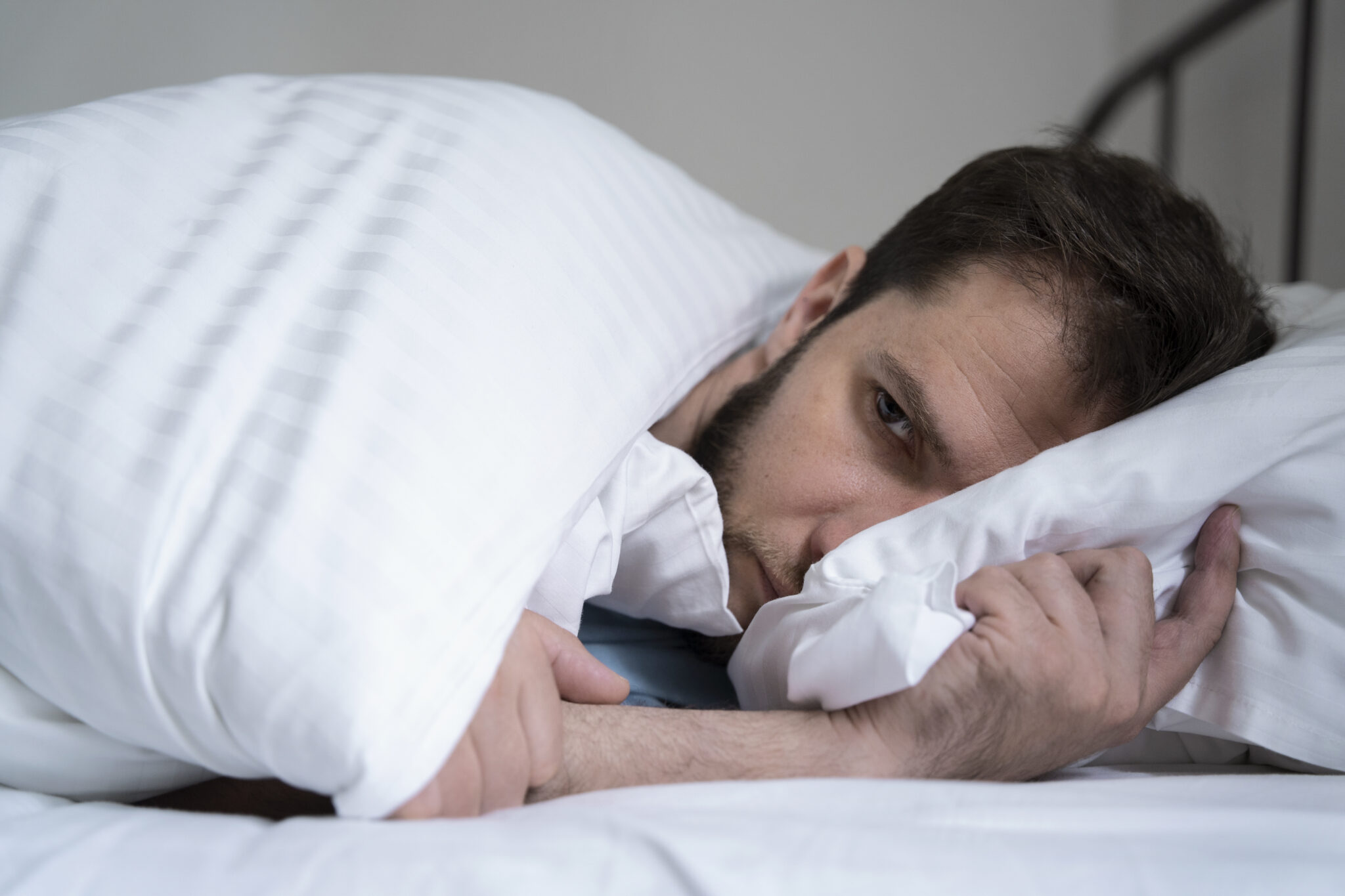We’ve all experienced a sleepless night or two before a big day or an important test, but if you find that your worries and anxieties are keeping you up on a regular basis, you’re not alone, and you don’t need to suffer in silence. Anxiety disorders and sleep disorders are both incredibly common. Lots of people have them, and what’s more, lots of people have both of them. These two problems can be very closely linked,
Anxiety and Insomnia
One of the most common symptoms of anxiety is sleep disturbances or insomnia. This can take multiple forms, including having trouble falling asleep, having trouble staying asleep, nightmares, poor quality sleep, or even waking up tired or having more trouble waking up in the morning than usual. Everyone feels nervous from time to time, but if you suffer from a more serious anxiety problem, chances are pretty good that you have issues with your sleep as well. This can be due to racing thoughts in your head as you worry, or the physiological response of the body to stress and anxiety keeping you awake, or both!
Which Causes Which?
Because anxiety and insomnia are so frequently comorbid (meaning they often occur together), finding out the root cause of the issue can be a bit of a chicken and egg situation. Does anxiety cause insomnia, or does insomnia cause anxiety? Most people can attest to the fact that you usually feel far worse and more prone to worry after a restless night’s sleep, so there is some validity to the idea that you can develop anxiety around pre-existing insomnia. At the same time, having an anxiety disorder leads to sleep problems very often.
The answer tends to be fairly case-by-case. If you can track your sleep problems back to before you were struggling with anxiety, then poor sleep is probably making you predisposed to that inescapable worry. If you only started having trouble sleeping when you started having anxiety, that’s probably the underlying cause!
What to Do About Anxiety-Induced Sleep Problems
Good Sleep Hygiene
It’s advice that you’ve surely heard a million times– keep a regular bedtime and wake up time even on the weekends, avoid bright lights before bed, keep your bed for sleeping, get exercise and bright light early in the morning, and so on. Still, there’s a reason that this advice about having a healthy sleep routine is so often repeated; it really does work.
If you’ve been struggling with insomnia for a long time, hearing tips about a nighttime routine probably makes you want to pull your hair out because you know it’s not impactful enough to actually get you to sleep. However, when you have a disorder like insomnia, sleep hygiene is less about solving the problem and more about eliminating obstacles and setting yourself up for success. It’s a baseline for you to maintain while you work on other solutions, so that you can get the most out of the sleep you do get, and so that you aren’t dealing with other factors worsening your sleep outside of your anxiety. Reframing how you think about these habits can help them to feel more worthwhile, and help you to keep them consistent!
Therapy and Medication
Therapy and medication can be helpful both in addressing your anxiety and your insomnia. There are therapeutic methods out there specifically designed to address both problems, including CBT-I, or cognitive behavioral therapy for insomnia, which can be especially helpful if you find your insomnia so stressful that you start to get anxious about sleeping. Anti-anxiety medications and sleep aids (including both over-the-counter and prescription versions) can also be very helpful in reducing your stress and helping you to get to sleep.
Anxiety-Reducing Techniques
When anxiety keeps you up at night, finding ways to bust that anxiety is crucial to helping you get the rest you need. A relaxing bedtime routine that includes gentle physical movement like yoga or journaling to help you get your thoughts onto paper can be very helpful.
If you’re really struggling, you might find it helpful to go against conventional advice to find ways to help you drift off. It’s often recommended to avoid exercising late in the evening, but if you find that you’re tired enough to sleep after a good workout, don’t be afraid to move your gym sessions later in the day. Standard sleep hygiene guidelines tell you to avoid devices and blue light around bedtime, but if you can’t ignore your racing thoughts enough to fall asleep, having the TV turned on might actually be beneficial for you. Your anxiety-reducing nighttime routine only has to work for you, so don’t be afraid to experiment and find a good fit for your own needs!
Dealing with insomnia is a struggle that no one should have to go through, but with the right support and treatment, you can help yourself to get those all-important eight hours again! If you’re interested in participating in our clinical study about anxiety, you can learn more here.







